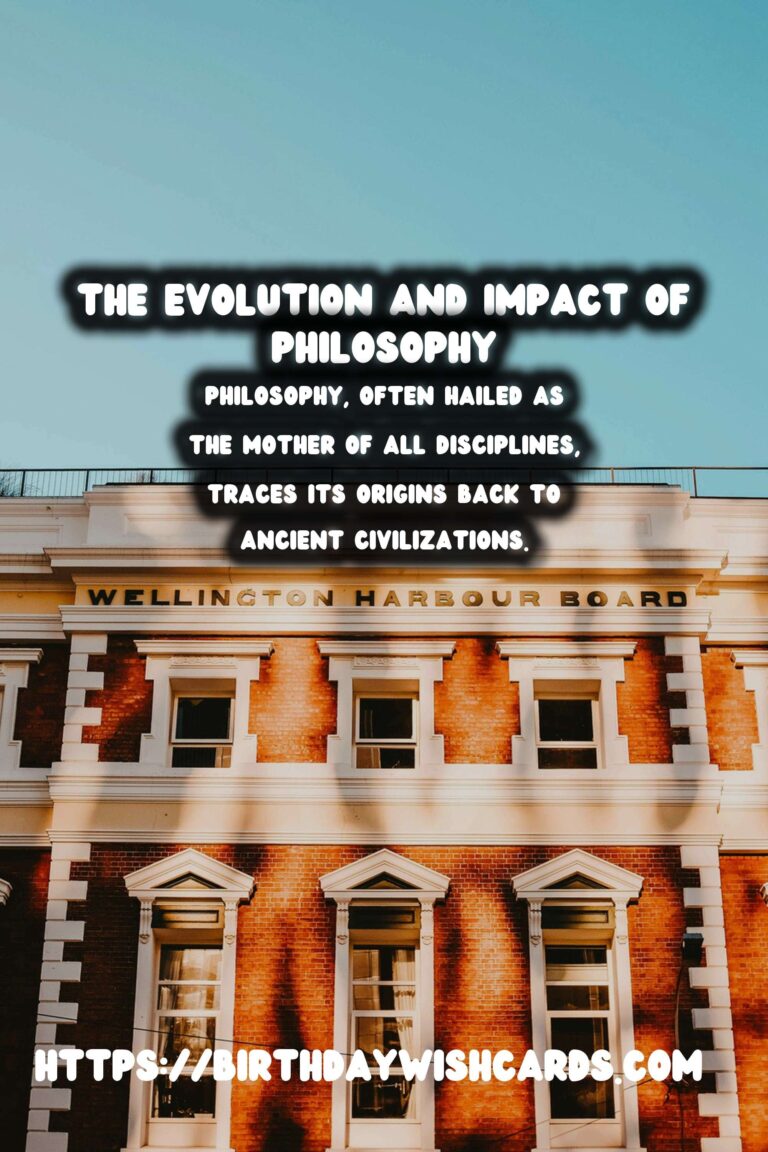
Philosophy, often hailed as the mother of all disciplines, traces its origins back to ancient civilizations. Through the ages, philosophical inquiry has shaped societies, influenced global leaders, and played a crucial role in the development of human thought. In exploring the major schools of philosophy, we gain insights not only into the historical context but also its contemporary relevance.
Ancient Roots: The Birth of Western Philosophy
The journey of philosophy commenced with the pre-Socratics in Ancient Greece. Figures such as Thales, Anaximander, and Pythagoras pondered the fundamental nature of existence and the cosmos. This early period laid the foundations for classical philosophies that would shape Western thought for centuries.
Socrates, often regarded as the father of Western philosophy, introduced the dialectical method, focusing on moral philosophy and the pursuit of virtue. His student, Plato, further expanded these ideas, emphasizing the realm of forms and establishing the Academy. Aristotle, Plato’s most famous student, developed a comprehensive system of philosophy encompassing logic, ethics, politics, and science.
Eastern Philosophical Traditions
Parallel to Western development, Eastern philosophy thrived through schools such as Confucianism, Taoism, and Buddhism. Confucius, in Ancient China, taught ethics, governance, and the importance of societal harmony. Laozi, the sage of Taoism, emphasized natural harmony and balance, often summarized in the concept of ‘wu wei’ or effortless action.
Buddhism, founded by Siddhartha Gautama, explored the nature of suffering and the path to enlightenment. With its profound insights into human existence, Buddhism gained widespread influence across Asia, leaving a lasting impact on cultural and philosophical landscapes.
The Middle Ages and Scholasticism
The Middle Ages witnessed the amalgamation of religious doctrines with philosophical inquiry, a period known as Scholasticism. Thinkers like St. Thomas Aquinas synthesized Christian theology with Aristotelian philosophy, attempting to reconcile religious belief with rational thought.
This era also saw the transmission of ancient Greek texts through the Islamic world, where philosophers like Al-Farabi and Avicenna preserved and advanced philosophical scholarship.
The Renaissance and Enlightenment
The Renaissance ignited a renewed interest in classical knowledge, paving the way for the Enlightenment. Philosophers like Descartes, Spinoza, and Kant questioned traditional authorities, seeking reason and empirical evidence as the basis of knowledge.
Rationalism and empiricism emerged as key philosophical movements, debating the sources of knowledge and truth. This period laid the groundwork for modern science, politics, and ethics.
Modern Philosophical Schools
In the modern era, philosophy diversified into various schools. Existentialism, led by Sartre and Camus, explored the meaning of existence in a world devoid of inherent purpose. Analytic philosophy, focusing on language and logic, gained prominence through figures like Russell and Wittgenstein.
Continental philosophy encompassed movements like phenomenology and post-structuralism, delving into human experience, consciousness, and the construction of reality. Thinkers such as Heidegger, Derrida, and Foucault challenged conventional perspectives, highlighting the subjective nature of knowledge.
Contemporary Relevance
Today, philosophical inquiry remains vital in addressing pressing global challenges. Ethics, political philosophy, and philosophy of mind provide frameworks to navigate the complexities of technology, governance, and human identity. Philosophers engage with issues such as artificial intelligence, environmental ethics, and social justice, ensuring that philosophical discourse remains relevant in a rapidly changing world.
Moreover, philosophy continues to influence interdisciplinary fields, including cognitive science, artificial intelligence, and education, fostering critical thinking and problem-solving skills essential in the 21st century.
In conclusion, the study of philosophy offers profound insights into human thought, shaping our understanding of reality and guiding contemporary discourse. By exploring its major schools and historical evolution, we grasp its enduring significance in navigating the complexities of modern life.
Philosophy, often hailed as the mother of all disciplines, traces its origins back to ancient civilizations. Today, philosophical inquiry remains vital in addressing pressing global challenges.
#Philosophy #History

